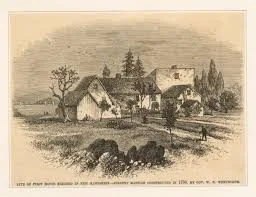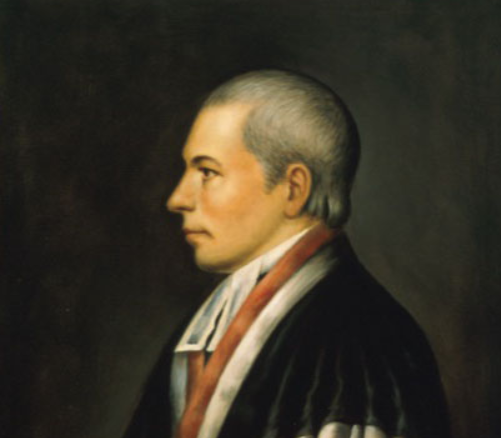Issac Smith - Partisan Politics in Early New Jersey
Isaac Smith was an early member of his State’s Militia during the American Revolution.
Smith spent two decades on the New Jersey Supreme Court before getting caught up in the difficult politics of Jeffersonian Era.
The Medical Society of New Jersey
By the outbreak of the Revolutionary War, Isaac Smith had first studied, then taught, at Princeton University.
After establishing a successful practice, Dr. Smith succeeded Nathaniel Scudder as the President of the Medical Society of New Jersey. This organization was constructed to promote the improvement of the practice of medicine and benefit the health of the citizens of that colony.
The Medical Society of New Jersey is today the oldest non-profit society in the United States.
Colonel
As independence approached, Isaac Smith signed up for the New Jersey Militia.
Due to his profession and patriotism (he was already on the Committee of Correspondence) he was commissioned as a Colonel. Not seeing much action, Isaac acted in more of a policeman type role for about a year (though he did spend time with Washington’s Army on the Delaware).
Smith resigned his position when, in 1777, he was chosen as he was selected to sit on the New Jersey Supreme Court. He would remain in this office for the better part of thirty years.
Congressman
Content serving his home State, Dr. Smith stayed out of the national spotlight for the next fifteen years.
By 1795, however, he was called upon to represent New Jersey in the United States House of Representatives. He did this faithfully, standing as a Federalist in what was the one of the country’s most precariously balanced ‘swing States.’
Partisan tensions remained high after he left.
Trenton Banking Company
When the Trenton Banking Company was created, the board unanimously elected Isaac as the institution’s first President. This was not without controversy, as a letter published in a local newspaper questioned if he was really the right man for the job or if he was being given a handout from the wealthy ‘Philadelphia Stockholders’ with whom he was so friendly.
It seems that Smith was the best man for the job. He successfully set up the Trenton Banking Company, even participating in working out details such as the type of paper used for the money which was printed.
Skipping the Treaty of Big Tree
There is one other interesting footnote in Isaac Smith’s story.
Near the end of his term in Congress, Smith was nominated by President Washington (and confirmed by the Senate) to travel north and negotiate a land exchange with the Seneca Indians. He politely turned the offer down, as he had just lost his third and final son.
These negotiations would be taken over by a group of men and in the end led to the Treaty of Big Tree.
The Treaty of Big Tree opened up all of Western New York to settlement by citizens of the United States. Additionally, this is more than a third of the length of the Erie Canal which would be constructed just twenty years later, bringing vast wealth to New York City and the nation as a whole.
If you would like to read about other Founders who were members of their States’ Supreme Court, check out my articles on Maryland’s Robert Hanson Harrison and Rhode Island’s William Ellery.
To learn more about New Jersey during the American Revolution, pick up a copy of the aptly named ‘American Revolution in New Jersey’ from the Amazon affiliate link below.
If you enjoyed this article and want more, feel free to subscribe to my email list to receive my daily articles right to your inbox.






